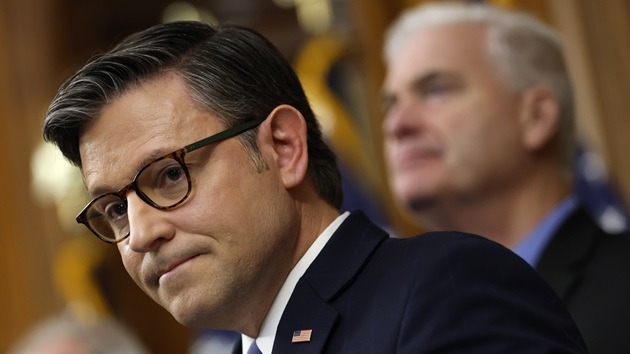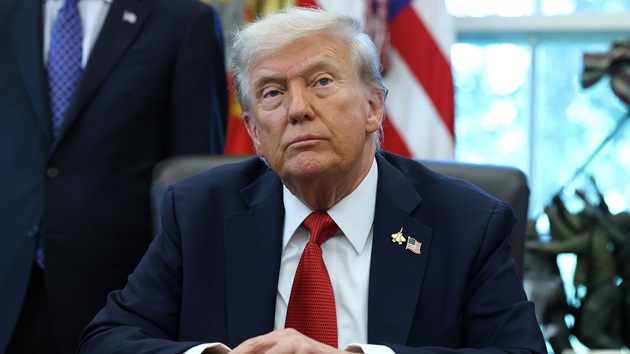Inside Arizona’s abortion ballot measure fight: One family’s story
Written by ABC Audio ALL RIGHTS RESERVED on November 3, 2024

(PHOENIX) — Kristin and Dave Gambardella never expected the journey of growing their family to include an abortion procedure, but in summer 2023, the married couple nevertheless found themselves in a Planned Parenthood parking lot in Albuquerque, New Mexico, a seven-hour drive from their home in Tucson, Arizona.
A week beforehand, a routine blood test at 17 weeks into Kristin’s pregnancy had come back with devastating results. A follow-up ultrasound confirmed her doctors’ fears. The fetus had a severe genetic abnormality.
“They told us it was really a guaranteed short life, full of pain and surgeries and constant medical care,” Gambardella said. “Dave is a stoic person,” she said of her husband, “and I remember he just broke down and lost it. And that’s when I really felt that feeling in my gut that was like, wow, this is pretty catastrophic.”
In deciding to end the pregnancy, the Gambardellas realized they weren’t only tasked with an agonizing decision for their family — they also had an Arizona law to contend with, which would prevent them from seeing any of their own doctors for the procedure.
“The doctor, I remember, she looked at me and her eyes just looked really sad. And she said, ‘No, you can’t come here. We can’t do that procedure for you. You’d have to leave the state’,” Gambardella said.
Arizona’s abortion ban
In Arizona — one of 21 states that has enacted abortion restrictions since the end of Roe v Wade — abortion is banned after 15 weeks, except for medical emergencies endangering the life of the mother. Gambardella didn’t qualify for that exception.
“As someone who has always believed in a woman’s right to make decisions about her own bodies, it was such a turning point in my understanding on just how much abortion care is interconnected with fertility care and the act of wanting to have a baby,” Gambardella said.
The experience inspired her to join the campaign to pass Proposition 139, a ballot measure that would enshrine in Arizona’s state constitution the right to an abortion until fetal viability.
Arizona is one of 10 states in the country that have such measures on the ballot this November, including Florida, Colorado, Maryland, Missouri, Montana and Nebraska.
This large push nationwide comes as abortion access remains one of the most important issues to voters this election — and the top issue for women under 30, according to an October survey by KFF, the nonpartisan health policy organization.
Where the candidates stand
Democrats hope that the issue could drive enthusiasm for Vice President Kamala Harris, who has centered her campaign on restoring reproductive rights and attacking former President Donald Trump for nominating the conservative Supreme Court justices that voted to overrule Roe v. Wade.
Trump, who has repeatedly shifted his position on abortion from supporting a federal ban to declaring that he would not pass one, while remaining open to other reproductive health care restrictions, maintains that he will “protect women,” but is sparse on details.
It’s not clear, however, if abortion-access ballot measures will alter the outcome of the presidential race in a swing state like Arizona. Voters could split the ticket — voting to enshrine abortion access, but prioritizing other issues in their presidential choice.
Trump is leading Harris in Arizona by two points, according to 538’s latest polling average, even as polling so far has shown the abortion access amendment in Arizona to be widely popular, with about 60% of likely voters saying they’ll support it.
That level of support is in line with the success of abortion rights ballot measures in other states over the last two years since Roe v. Wade was overruled. Reproductive rights ballot measures have passed every time they’ve been on the ballot, whether the state leans Republican, Democrat or is closely divided like Arizona.
Susan Ashley, a retiree and a volunteer for the Arizona for Abortion Access campaign, says her “fury” over Roe vs. Wade being overturned drove her to make the initiative her “full-time job right now.”
“I’ve been an active voter, but I’ve never been involved in an event where there were so many passionate volunteers. And so this struck a nerve,” Ashley said.
Efforts on the ground
Athena Salman, a former Arizona state representative and director of Arizona campaigns for Reproductive Freedom for All, was at Ashley’s side for door-knocking in mid-October, in the 90-degree heat.
The two women spoke to nearly a dozen registered Independents in a neighborhood of Chandler, Arizona, a suburb of Phoenix. Each voter they spoke to said they were supporting the ballot measure.
“I think it really shows that Arizonans are just fed up with their reproductive freedom being up in the air and they’re ready to take action and get the government interference out of our personal decisions,” Salman said.
Though Arizona currently bans abortion at 15 weeks, the state saw all abortions halted for four months in the summer of 2022 when a ban from 1864 was revived. It nearly took effect again in the spring of 2024, but the Arizona state legislature repealed it after massive outcry from residents and a push from the Democratic Gov. Katie Hobbs and Attorney General Kris Mayes.
To Cindy Dahlgren, spokesperson for the campaign against the abortion access ballot measure, the legislature’s decision to repeal the near-total abortion ban and keep a 15-week ban should put people at ease.
“Proponents play on those fears and that confusion by saying there’s a ban when there’s not a ban,” she said, arguing that the current law only curtails the procedure but doesn’t fully ban it. “I would also point out that it was the legislature that repealed that law. And there doesn’t seem to be an appetite to put that law back in.”
Her campaign, called “It Goes Too Far,” argues that enshrining abortion access until fetal viability would remove too many restrictions around abortion, leaving it too unregulated.
“The choice really in November is not between abortion or no abortion. It’s between limited abortion and safety precautions and a doctor and parents involved or unlimited and unregulated abortion,” Dahlgren said.
Asked about cases like Gambardella’s, where pregnancy complications arise in the second trimester, or women who experience rape or incest and do not qualify for an exception, Dahlgren said, “we do not have to enshrine a very extreme abortion amendment to care for those victims.”
But Dr. Misha Pangasa, an OB-GYN with Planned Parenthood, one of only nine clinics in Arizona providing abortion care, said she doesn’t want to leave reproductive rights up to the political makeup of the state legislature anymore.
“The idea that Arizonans health care is at the whims of whichever legislature is holding the majority is never going to be the best way for people to get the best care,” Pangasa said.
There are currently around 40 laws that restrict abortions in the state of Arizona, which Pangasa said have already significantly impacted her ability to provide care to pregnant patients.
“Pregnancy is complicated and decisions at various stages are hard. And I am the one there helping support them. And what I wish that our government would do is just let me,” Pangasa said.
Pangasa said she sees patients like the Gambardellas on a regular basis.
“To be honest, it’s a really heartbreaking moment to be in when I talk to my patients and say, if you were in a different state with me right now, I would tell you that these are your options. But because we’re in Arizona, an abortion is just not an option,” she said.
Copyright © 2024, ABC Audio. All rights reserved.





